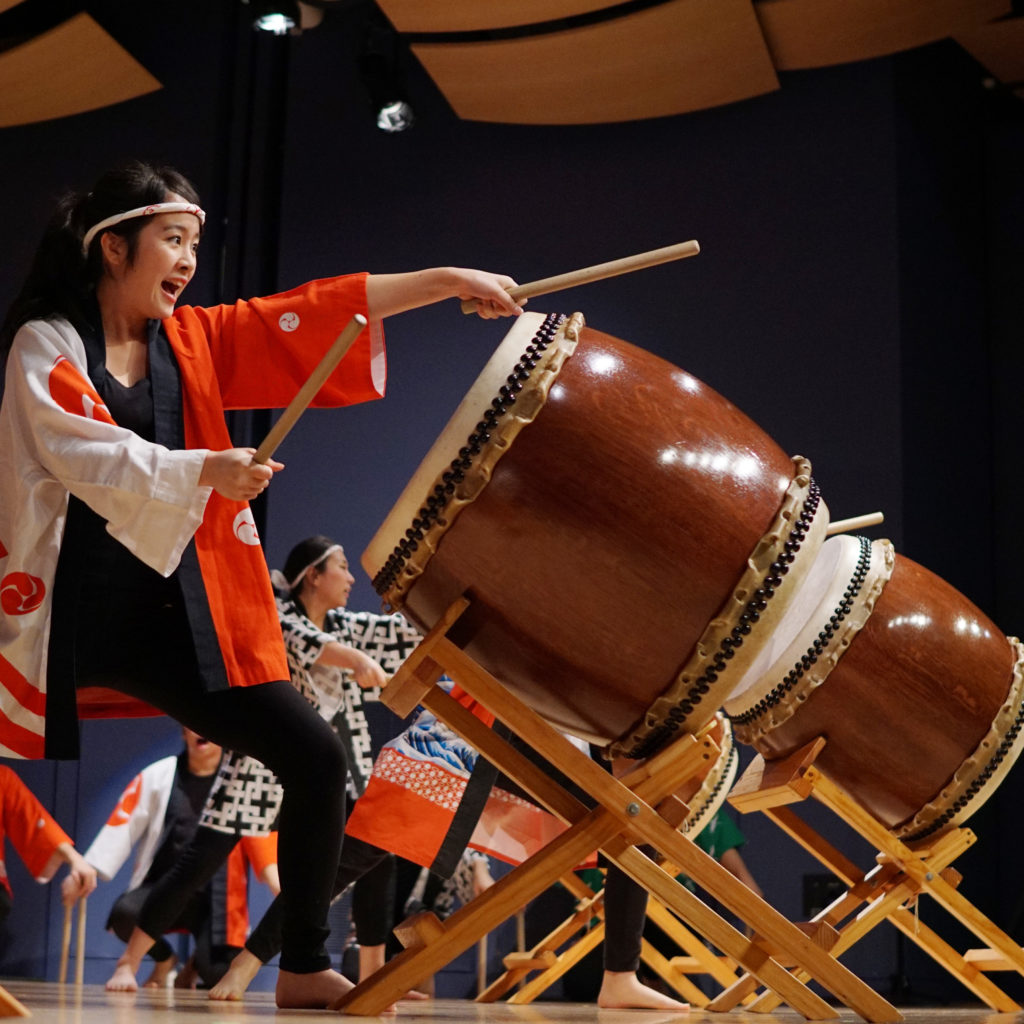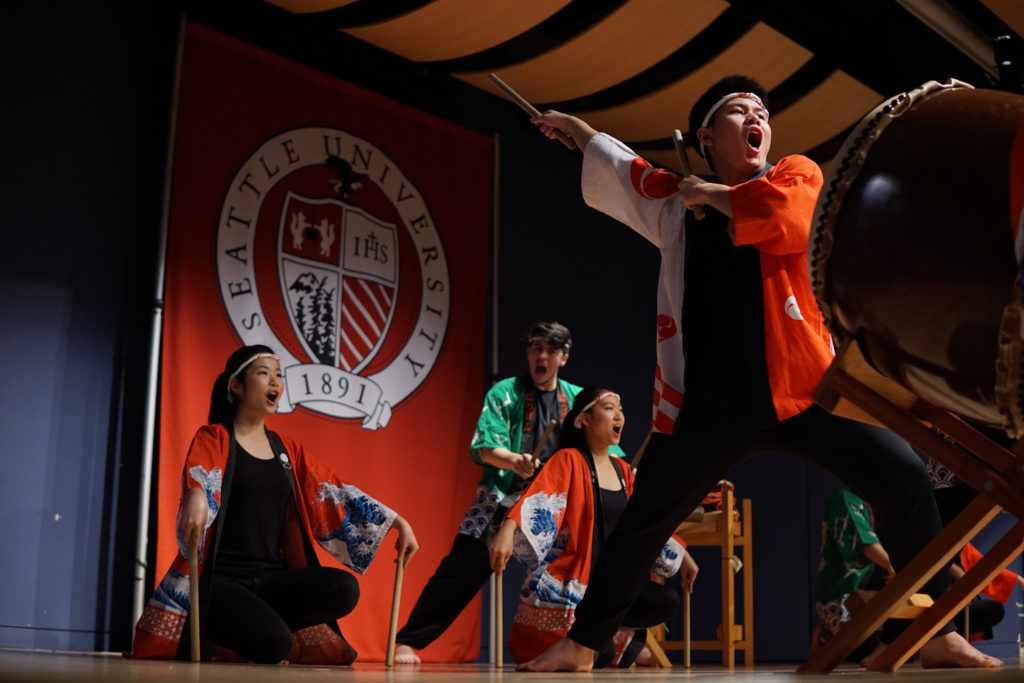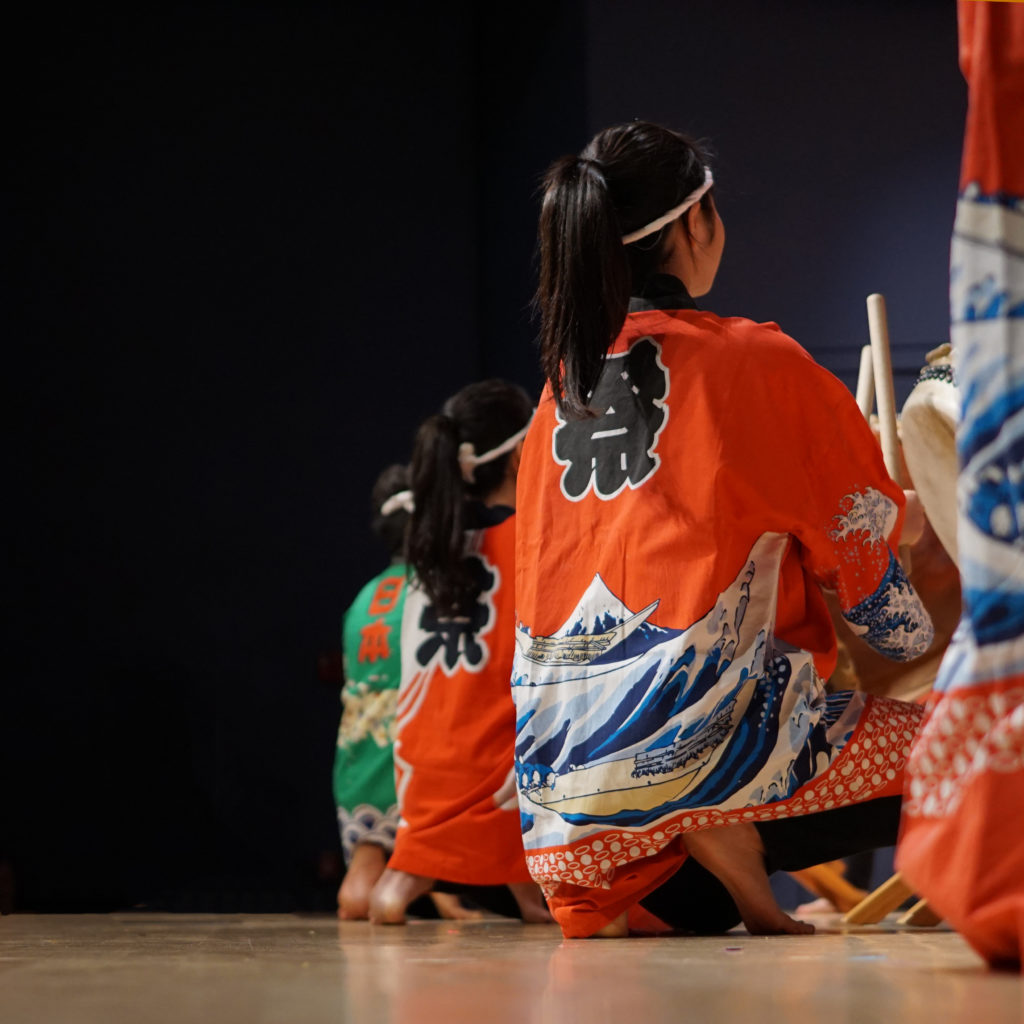“On February 19, 1942, with a swipe of Franklin Delano Roosevelt’s pen, I lost my freedom. I never thought I would be here today. But today, I am happy,” said Yosh Nakagawa, the keynote speaker at the Day of Remembrance. The room went quiet as the somber history of Executive Order 9066 was recounted. Sunday marked the 75th anniversary of the day President Roosevelt allowed the incarceration of Japanese and Japanese American individuals.

Seattle University’s Hidaka Taiko Club performed at the “Day of Remembrance” event in Pigott on Sunday.
It didn’t matter if someone had been an American citizen their whole life, or if they fought for the American Armed forces, having Japanese ancestry was the single qualifying factor for the 120,000 people who were sent to concentration camps. This number included 15 individuals from Seattle University, which was called Seattle College at the time.
For seven years, Seattle U has hosted a fundraiser on the Day of Remembrance. All proceeds going to the Minidoka Pilgrimage Planning Committee (MPPC), which has offered youth and elder scholarships for 15 years, enabling individuals to go on the annual Minidoka Pilgrimage to the site of a former internment camp in Idaho. The Day of Remembrance included exhibits, speeches, a raffle and performances by several Taiko clubs and the Muckleshoot Canoe Family. Seattle U’s new Hidaka Taiko club was among those to perform. Although the day marks a dark time in our country’s history, it was also a day of hope.
“The hope I cling to is that people will not be silent,” Dale Watanabe, Assistant Director of the International Student Center, said in an interview prior to the Day of Remembrance. Watanabe is also the treasurer and co- chair for scholarships at the MPCC.
“The reason I’m involved with the MPCC is because I want to help educate people,” Watanabe said. The MPCC is run entirely by volunteers, and they have provided scholarships that have enabled elders and youth to go on the annual pilgrimage, share their story and learn about the past.
Several Seattle U students have gone on the pilgrimage to Minidoka. One of these students is Caroline Umukobwa.
She described her experience on the pilgrimage, saying that she got to see the original site of block 22, which includes a group of eight barracks, a mess hall and showers. Six families lived in each barrack; each room had a single light bulb hanging from the ceiling, no heat and gaps in the floor and wall boards that allowed dirt and the biting wind to enter the barracks.
“It was interesting, but also emotional. Especially when people shared about their experiences at the camp,” Umukobwa said. “It is very educational. I didn’t even know about the internment camps before the pilgrimage. It was an eye-opening experience and you don’t see things the same afterwards.”
The goal of the annual pilgrimage is to encourage people to make their story heard, to educate and to prevent the same mistakes from being made in the future. Nakagawa mirrored this sentiment.
“We remain silent. But it is time for you all to tell your stories. All of you have great stories,” Nakagawa said. “It is better today than it was in 1942. Don’t go back to 1942. Today, I want all of you to give thanks to each other. Your story is essential. America needs good news again.”
A palpable aura of energy and excitement was present as the Taiko groups filled the air with the rhythmic sound of their drums. Performers ranged from amazingly coordinated and confident young children to lively and smiling elderly folks.
Watching the performances put a smile on the faces of the audience, despite the sad events surrounding the day. The goal is to look into the future with hope and a new sense of energy, to speak up and not remain silent about the injustices in the world.
“I hope this energizes you to do something. We cannot afford to be silent in 2017,” Watanabe said in his closing remarks. Silence did not work in the past, and it will not work now. There is still discrimination in the world, as has been brought to the spotlight by recent politics in America. Many people are scared for the future of minority groups such as Muslims, LGBTQ individuals, people of color and other groups. Nakagawa addressed the present concern for these groups and paralleled it to the past of the Japanese people. He stressed the importance of every person’s story being told and not allowing the past to recur.
Sunday ended with a vigil at the Japanese American Remembrance Garden on campus. Rain was falling from the sky and everyone was holding an LED light, bowing their head in silent solidarity, reflecting on the day and thinking about future hopes.
As was said by a prayer leader at the vigil, “never again 9066.” We must learn from the past—because as the popular saying goes—those who do not learn from history are bound to repeat it.
Bailee may be reached at
bclark@su-spectator.com










